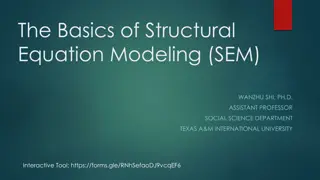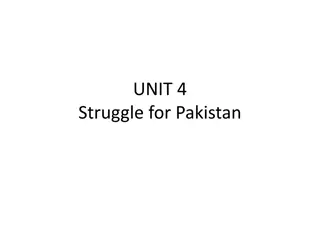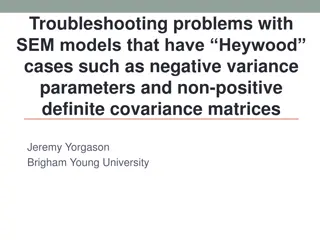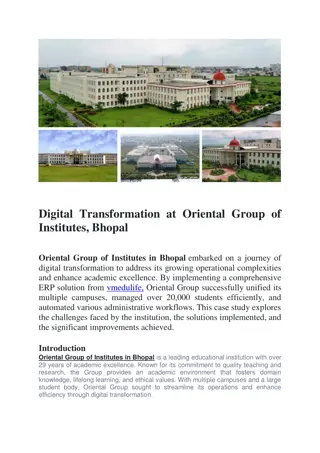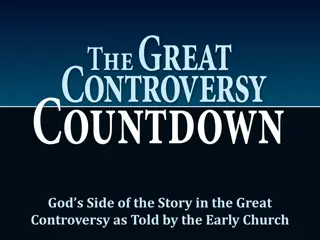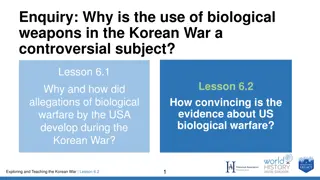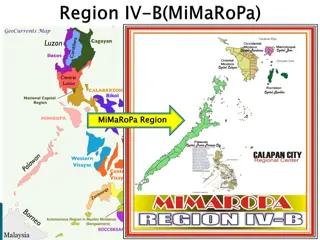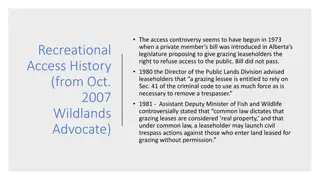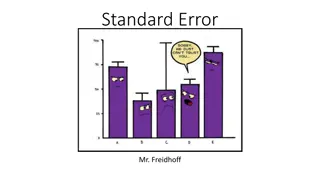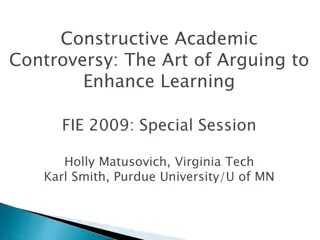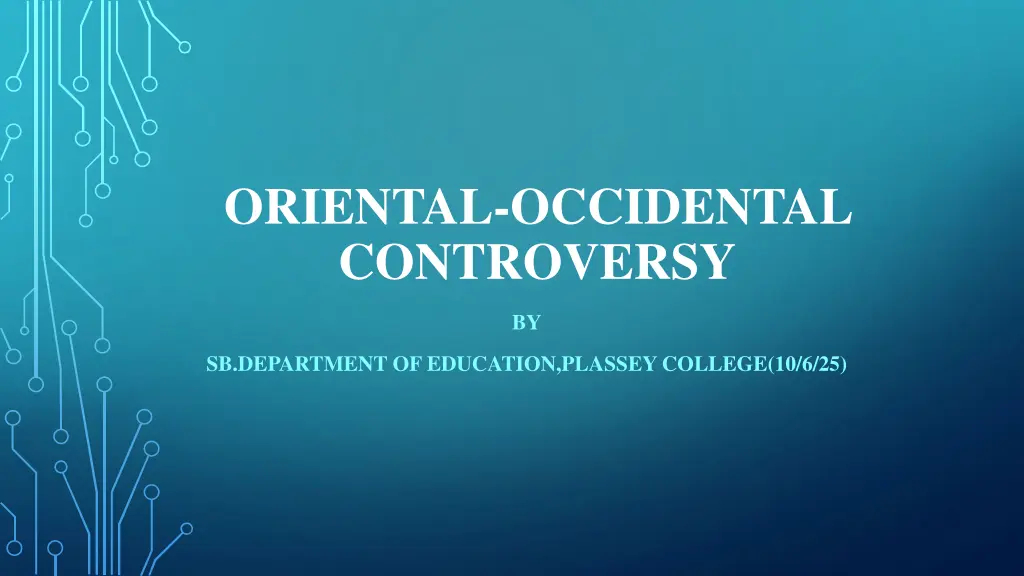
Oriental vs. Occidental Education Controversy
Explore the Oriental-Occidental controversy in colonial India's educational system, highlighting the clash between traditional Indian education and Western influences. Learn about the differing views on language, cultural superiority, use of funds, and the role of British governance in shaping educational policies. Delve into key figures like Charles Edward Trevelyan promoting Western education and James Prinsep advocating for Oriental education, reflecting the complex dynamics of the time.
Download Presentation

Please find below an Image/Link to download the presentation.
The content on the website is provided AS IS for your information and personal use only. It may not be sold, licensed, or shared on other websites without obtaining consent from the author. If you encounter any issues during the download, it is possible that the publisher has removed the file from their server.
You are allowed to download the files provided on this website for personal or commercial use, subject to the condition that they are used lawfully. All files are the property of their respective owners.
The content on the website is provided AS IS for your information and personal use only. It may not be sold, licensed, or shared on other websites without obtaining consent from the author.
E N D
Presentation Transcript
ORIENTAL-OCCIDENTAL CONTROVERSY BY SB.DEPARTMENT OF EDUCATION,PLASSEY COLLEGE(10/6/25)
Oriental and Occidental controversy Different Views on Education: Orientalists supported traditional Indian education; Occidentals wanted Western education and science. Language Debate: Orientalists promoted classical languages like Sanskrit and Persian, while Occidentals preferred English. Cultural Superiority: Occidentals believed Western culture was better and wanted to spread it in India. Use of Funds: There was disagreement on whether education funds should support Indian or Western knowledge. British Political Agenda: The British government wanted to use education to strengthen their rule, which led to favoring Western ideas.
Printing and Publishing: Occidentals focused on printing English books, while Orientalists wanted to preserve ancient Indian texts. Religious Differences: Western education was often linked with Christian missionary work, which created tension. Job Market Demand: The British needed English-educated Indians for administrative work, supporting Occidental ideas. Governor-General s Role: Leaders like Lord Macaulay strongly supported Western education, increasing the controversy. Colonial Control: Promoting English helped the British control communication and governance, fueling the debate.
Sir Charles Edward Trevelyan Sir Charles Trevelyan played a major role in promoting Occidental or Anglicist education in colonial India. He was a strong advocate of English education, believing it would improve the intellectual abilities of Indians. Trevelyan supported Lord Macaulay s famous Minute on Education and actively helped implement the policy of promoting Western science, literature, and moral values through the English language. He felt this system would create a class of English-educated Indians who could act as intermediaries between the British rulers and the Indian population. His efforts significantly influenced the direction of British educational policy in 19th-century India.
James Prinsep James Prinsep played a significant role in promoting Oriental education during British rule in India. He was deeply engaged in studying ancient Indian languages, coins, and inscriptions, contributing greatly to the understanding of India's historical and cultural heritage. His most notable achievement was deciphering the Brahmi script, which helped unlock Ashokan edicts and shed light on early Indian history and Buddhism. As a member of the Asiatic Society of Bengal, he supported preserving Indian classical texts and traditions. Prinsep also made valuable contributions to Indian astronomy and linguistics, highlighting the intellectual richness of Indian civilization rather than replacing it with Western ideas.
GCPI stands for General Committee of Public Instruction, a British colonial educational body established in India in the early 19th century. The GCPI was formed in 1823 by the British East India Company under the leadership of Governor-General Lord Amherst and William Adam Purpose of Forming GCPI: To guide and supervise educational policies in British India. To advise on the use of the Educational Fund, particularly the 1 lakh granted annually for promoting education. To resolve debates between Orientalists (supporters of traditional Indian education) and Anglicists (supporters of Western, English education).
Macaulay Minute The Macaulay Minute on Education, delivered by Thomas Babington Macaulay in 1835, was a landmark document that shaped British education policy in India. Macaulay argued strongly for promoting English language education and Western knowledge over traditional Indian learning. He believed that Western literature, science, and morals were superior and that teaching in English would help create a class of persons, Indian in blood and colour, but English in taste, in opinions, in morals, and in intellect. This class would serve as cultural and administrative intermediaries between the British rulers and the Indian masses. Macaulay criticized Indian classical languages like Sanskrit and Arabic, stating that they were a single shelf of a good European library better than all the native literature in India. His Minute led to the official policy shift favoring English education, which received greater funding and support, while traditional Oriental studies were sidelined. This decision had a lasting impact on India s educational system, leading to the widespread teaching of English and Western subjects.
However, Macaulays views were controversial. Orientalists and many Indians opposed the neglect of Indian languages and culture. Critics argue that his policy contributed to cultural alienation and undermined indigenous knowledge systems. Despite this, the Macaulay Minute remains a significant moment that defined the colonial educational framework in India, influencing the country s social and political development for decades. Downward Filtration Theory according to Macaulay is the idea that education and knowledge should start from the top teaching a small, educated elite in English and then gradually spread or "filter down" to the broader population over time.





